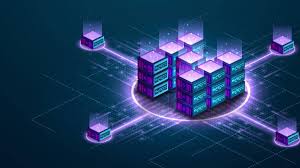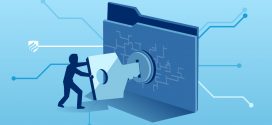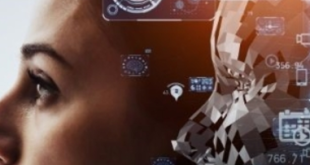 Blockchain can be described as an open distributed ledger containing records of economic and financial transactions. It can be programmed to record all types of transactions that have some value. One of the best things about blockchain technology is that data once entered in the blockchain database is impossible to alter or manipulate. Only new data can be added to the blockchain database, which makes it a highly secure mechanism for storing and accessing data.
Blockchain can be described as an open distributed ledger containing records of economic and financial transactions. It can be programmed to record all types of transactions that have some value. One of the best things about blockchain technology is that data once entered in the blockchain database is impossible to alter or manipulate. Only new data can be added to the blockchain database, which makes it a highly secure mechanism for storing and accessing data.
How blockchain works
In the traditional system, transactions are recorded on a limited number of databases. For example, when you deposit some cash in your bank, the transaction is recorded on the bank’s servers. Your bank may also maintain paper-based records of such transactions. However, these records are not 100% safe, since data can be lost due to a technical glitch or hacking. Paper-based records may also be lost in case of specific circumstances such as fire, floods, theft, etc.
Blockchain is far more reliable and foolproof as compared to traditional systems because the transactions are recorded across millions of computer systems. If you deposit cash in your bank through a blockchain system, the transaction will be recorded across millions of computer systems. This significantly reduces the risk of data loss, since it’s nearly impossible that millions of computers across the globe will lose data all at once.
What makes blockchain secure
The blockchain system utilizes advanced cryptography to secure records across millions of computer systems. Information can be viewed by verified users and they can add new data, but records that are already there cannot be altered by anyone. This makes the data highly secure and unalterable. Each set of data is stored in specific blocks and each of these blocks has a timestamp and a link to the previous block. Even if anyone does manage to alter data in a specific block on a particular computer system, it won’t be valid since the original data will still be there across millions of computers across the globe. Anyone changing records on a single computer or even hundreds of computers would not result in corruption of data. The advanced cryptography and incorruptible nature of records is what makes blockchain the most secure technology currently available.
Uses of Blockchain
The Blockchain technology is currently being used extensively for the trade and exchange of digital currencies such as Bitcoin. Owing to its superior security and incorruptibility features, blockchain can be used for several other transactions. It can be used for contracts, economic transactions, crowdfunding, governance, supply chain auditing, property records, identity management, data management, land title registration, stock trading, etc.
Benefits of blockchain
Data stored on blockchain databases is unalterable and incorruptible. Experts believe that benefits of blockchain will be available to everyone, right from the common man to businesses and governments. A recent survey showed that large businesses can save up to $ 12 billion annually if they adopt the blockchainsystem to recordtheirtransactions. According to the United Nations Organization (UNO), blockchain can be hugely beneficial for poor people across the globe. With blockchain technology, it would become easier to establish the identity and economic conditions of poor people. This will allow social welfare organizations to provide the necessary relief and support to the right people.
Blockchain has the potential to transform the way we transact. However, it faces many challenges such as resistance from traditional authoritieslike banks and governments. Blockchain has the potential to transfer power to the common man, something that may come in the way of the plans of traditional authorities. It remains to be seen whether blockchain can overcome its challenges and emerge as the backbone of economic, financial and other transactions.
 Newspatrolling.com News cum Content Syndication Portal Online
Newspatrolling.com News cum Content Syndication Portal Online






